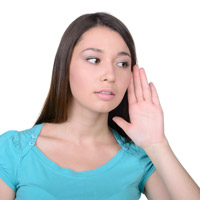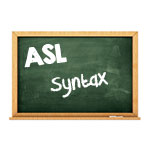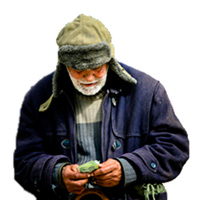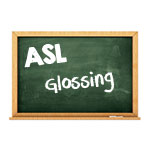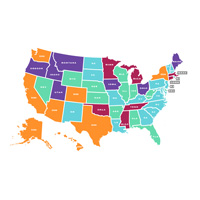All Articles
Incidental Information You Don't Get when You're Deaf
Hearing people have access to “incidental information” all the time. They overhear conversations, they hear comments and remarks on the radio and television. Even background noises count as incidental information. This is called “hearing privilege.” You don’t even think about it happening because it just does. How often can you actually pinpoint the exact moment you learned a new piece of information? Most of us forget where or how we came by the knowledge we have. We just know what we know. Here are some examples of when hearing people get information that deaf people do not...
Interpreter 4-1-1: 5 Tips for Job Hunting as an Interpreter
Today applications for new jobs are increasingly offered exclusively via websites. With social media and our entire lives online most employers know quite a bit about you, including your reputation and writing skills, before they ever meet you face to face. References have also become more important as references are sometimes the first people that interviewers speak to. Are you representing yourself well? How do you decide who to ask for a reference? Here are 5 tips for laying the foundation for your job hunting and finding a good recommender...
Using a Swiss Cheese Folder to Plug Holes in Education
Being an educator of deaf children for over twenty years, I know the frustrations that occur when you are working with a student and continue to find gaps in their understanding of certain concepts. It’s shocking to find out that your second grader doesn’t know something like their middle name or their address. It’s easy to say to yourself, “Why didn’t the parents or the teachers before me teach this child this information?”
Instead of pointing fingers, there is a ...
Interpreter Q & A: How to Handle Rude Clients
This Interpreter Q & A asks: In the post-secondary setting where I interpret, one particular Deaf student frankly doesn’t have much in the way of social skills. She is just plain mean to everyone and it’s uncomfortable and embarrassing to be around her. She’s either rude or inappropriate or both. Her hearing classmates, upon meeting their first real live Deaf person, try to be friendly, but, more often than not, walk away completely turned off. Please don’t tell me to just not take assignments where she is the client; as a staff interpreter, we don’t always have that choice. She knows she’s a "challenge." I suspect she gets off on it!
This article is part of our "Dear BC, Interpreter Q & A” series, which answers questions on interpreting and Deaf culture from multiple perspectives.
5 Ways for Kids to Communicate Easier with Sign Language This Summer
Summer is HERE! For most children this means a break from school and fun in the sun with long summer days playing with friends. Unfortunately, for many deaf and hard of hearing children, these weeks away from school can mean days without good communication. They will still have great summer days of play with friends and picnics with family, but often times communicating at home can be more of a struggle than at school – signing skills may not be ...
Interpreter Q & A: Is It Better to Be Late or Wet?
This Interpreter Q & A asks: Which is better in your opinion — to be a few minutes late for an interpreting job when it is pouring rain or to show up on time, but soaking wet?
This article is part of our "Dear BC, Interpreter Q & A” series, which answers questions on interpreting and Deaf culture from multiple perspectives.
ASL Syntax
In addition to having its own vocabulary, American Sign Language also has its own grammar and syntax that differs from English.
Why Not to Buy Manual Alphabet Cards from Peddlers
We are constantly posting tips, facts, and learning resources related to sign language and Deaf culture on our Twitter @SigningSavvy. Occasionally we get questions about our tweets and explain them further with a followup article, like this one: At the airport I was approached by a deaf person selling manual alphabet cards. Should I buy one? Answer: No! No! No! #Deaf #ASL
Interpreter Q & A: Interpreter Credentials
This Interpreter Q & A asks: It just so happens that I’ve been collecting interpreter business cards for a long time now and I’m convinced that anyone and everyone these days can call themselves an "interpreter" without any credentials to back up their claim. Truth be told, our consumers aren’t always familiar with all our acronyms and the terminology we use for certification levels, so they can be easily misled. Here are some examples of titles I have in my collection from non-certified "interpreters" out there: "ASL Interpreter," "State Certified Interpreter," "ITP Graduate," "Freelance Interpreter," "Interpreter for the Hearing Impaired," and my favorite… "Hearing Impaired Interpreter"… this was a hearing person!
ASL glossing and conventions
Since ASL is a visual-gestural language, not a spoken consecutive language, it can only truly be recorded in video and not captured in writing. Many writing systems have been developed for ASL, but none of them have reached a critical mass, probably because it is difficult to capture handshape, location, palm orientation, movement and non-manual signals in a written word. For that reason, when scribing ASL, many people rely on the linguistic convention called "glossing," which means writing a word in your native language for each sign that appears. This is not a perfect system, but it can be useful when discussing the syntax of other languages, signed or spoken.
